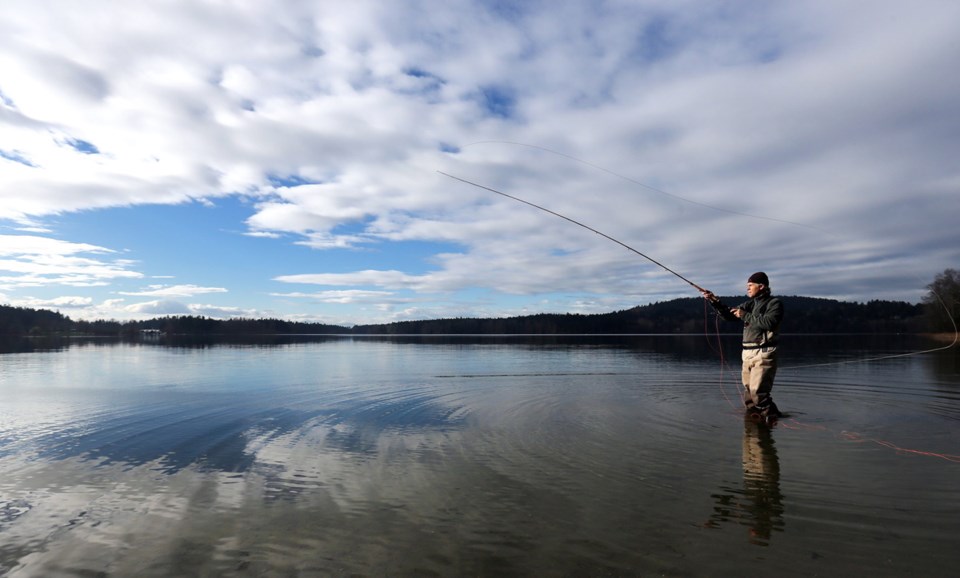Capital Regional District parks committee members are recommending spending $200,000 to buy a weed harvester for Elk/Beaver Lake.
Committee members also recommend that the CRD hire a half-time co-ordinator for four years — at a cost, including operating funds, of $122,000 a year — to oversee implementation of a watershed management plan and investigate the cost of buying and installing an aerator for the lake.
The recommendations came Wednesday after representatives from a number of lake user groups pleaded for action.
Elk Lake is sick and there is no time to waste, said Robert McConnell, president of the Victoria Golden Rods and Reels Society, which has spearheaded efforts to draw attention to the lake, spending many unpaid hours collecting water samples and raising more than $25,000 to pay for lab work and data study.
“We’ve reached a critical point and here’s the problem: All of this was already done 25 years ago,” McConnell said.
At that time, he said, the provincial Ministry of the Environment did a full water-quality analysis of Elk Lake and found excessive weed growth and phosphorous levels as well as toxic algae blooms.
The 1992 CRD Elk/Beaver Lake and Bear Hill Regional Management plan recommended installation of an aerator in the lake, development of an annual water-quality monitoring plan, an evaluation of water quality every three years and establishment of objectives for phosphorus and related parameters.
None of that has been done, he said.
“So here we are today. We’ve had a second full water-quality survey of the lake. It shows that the lake is in much worse condition than it was in 1992. The recommendations that result will parallel those made 25 years ago,” he said.
Ian Bruce, executive co-ordinator of the Peninsula Streams Society, warned Elk/Beaver Lakes is near its tipping point and headed toward eutrophication, which happens when water quality is degraded by a buildup of nitrogen and phosphorous.
“Collectively, we have an opportunity to slow the process. If we don’t, algal blooms — both toxic and non-toxic — will become more frequent to the point that in-lake recreation will diminish or cease, fish will die and even use of the trails in the park itself will fade away,” Bruce said.
Brenda Taylor of the Victoria Rowing Society said a new weed harvester will make the lake safer and more enjoyable for all users. “The rowing community sees every day the deterioration in the water quality of Elk Lake and we’re really concerned about it,” Taylor said.
Several levels of government have a stake in the management of Elk/Beaver Lakes.
The province owns the lake bottom, sediments and water column, while Transport Canada manages activities on the lake surface and the CRD is responsible for the surrounding park lands. The watershed lies predominately within the District of Saanich, discharging through the Colquitz River into the Gorge Waterway. Island Health monitors the beach for recreational health concerns.
With an estimated 1.48 million visits in 2014, Elk/Beaver Lake is the most heavily used park in the region.



